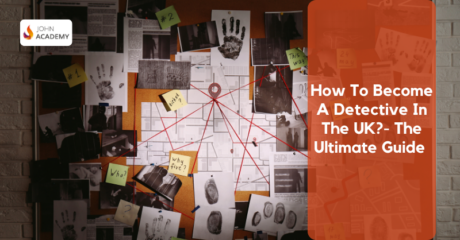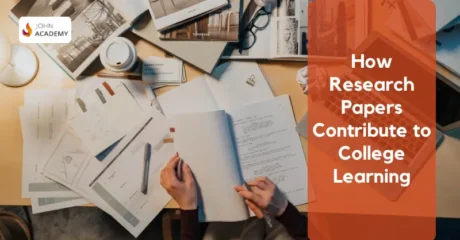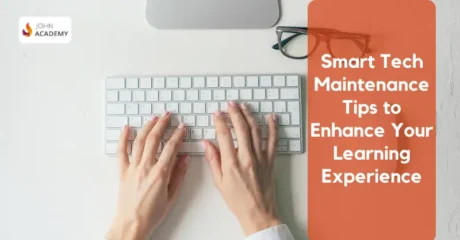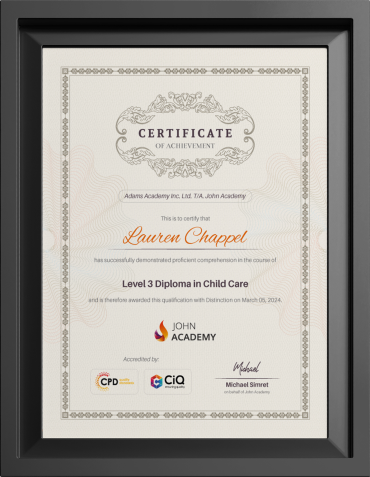

If you’re the kind of person who enjoys working with numbers, finding solutions to different problems and helping other people manage their finances, then a tax accountant career would be perfect for you. Tax accountants come in handy the most at tax time, but their work is critical to personal and business finances.
So, how does a person become a tax accountant? Well, if you are just getting started, the question remains in the air. Be it a fresh graduate or one thinking of moving to a different profession, this blog is for many people- seven simple steps to help one get a foot into the world of tax accounting.
Table of Contents
What Does a Tax Accountant Do?
Tax preparers perform the business and individual work of preparing tax submissions. The responsibilities of tax preparers include preparing tax returns and filing them, minimising encumbering legal liabilities and ensuring that clients meet all their obligations. They also provide tax planning services and client representation during a tax audit.
Some of the common tasks done by tax accountants include:
- Preparing tax returns and filing them.
- Advising clients on how to save tax.
- Computing tax liabilities on income and expenses.
- Keeping abreast of changes in tax legislation.
- Compliance assistance during tax audit.
- Tax correspondence with HMRC or other relevant tax authorities.

Step 1: Understand the Role of a Tax Accountant
Before plunging into the profession, one must know what being a tax accountant entails, this job is more than just crunching numbers and requires strategic thinking and incessant learning and effective communication.
Such as:
Interpret and apply complex tax codes
Stay organized during deadlines, especially around tax season
Work with a wide range of clients from individual taxpayers to large corporations.
Make sure that they are both legally compliant, as well as maximizing their tax strategies.
When you feel convinced that this is the best fit for your strengths and interests, then move ahead.
Step 2: Gain the Necessary Educational Qualifications
To be a tax accountant in the UK, having a good educational background is important. Most employers look for candidates with at least a Level 3 qualification, like A-levels or its equivalent. But often, gaining a degree at university in one of the following disciplines is a common path:
Accounting
Finance
Business Management
Economics
If you are changing career paths and do not possess a degree in the relevant field, do not fret, as there are other routes through diploma courses as well as accounts apprenticeships. Courses that teach online can be a good means for knowledge in taxation and accounting fundamentals. For instance, enrolling for a Tax Accounting and VAT Training Diploma will create a wonderful pathway if you cannot yet commit to a whole degree course.
Step 3: Choose Your Accounting Pathway
With education comes the decision about which specific professional pathway to choose. In the UK, there are several accounting bodies who offer their certifications in specific tax areas,
- AAT (Association of Accounting Technicians): Best for beginners.
Gives practical hands-on knowledge in accounting and taxation in theory and practice.
Ideal for persons who do not hold a degree.
- ACCA (Association of Chartered Certified Accountants): Recognised all over the world.
It offers a complete and detailed in taxation, both corporate and personal tax.
The best for someone looking for a broader employment career choice.
- ATT (Association of Taxation Technicians): Tailored specifically to tax professionals.
Best if you want to go straight into taxation.
- CTA (Chartered Tax Adviser): Topmost level of tax qualification in the UK.
Usually will involve prior qualifications like ATT, ACCA.
Best for people who want to go into advanced tax roles or consultancy.
They differ as per what application would now take with respect to current experience, education, and goals in an actuarial career.

Step 4: Get Practical Experience
A wider gap in this section can make it much brighter. Learning is important, and so is practising it in real terms. That’s when students tend to gain an internship to gain experience. Here are some of them:
Internship in an accounting firm;
Part-time employment in the finance departments of a company.
Volunteerism with the help of charities that need assistance in handling finances;
Apprenticeship classes for entry-level without a degree.
A practical exposure may help:
Know how tax laws are applied in actual situations.
Build confidence while using accounting software.
Learn client communication and time management techniques.
Start networking with professionals in the field.
Additionally, many employers offer a training contract that allows one to study for a professional qualification while working.
Step 5: Earn a Professional Certification
For the professional tax accountant, the membership with a particular accounting body is essential because that will make better any reference to him. At the same time, one will improve his earning potential and good prospects in his job.
For instance:
Complete the AAT Level 4 Diploma, becoming a qualified accounting technician.
Complete the ACCA or ATT programme to qualify for higher-level tax positions.
Gain CTA as you elevate yourself to the peer group of the best-of-the-best.
It will mostly take several exams, ethics modules, and working experience to meet these requirements.
Step 6: Stay Updated With Tax Laws
Seek continuous learning on changing tax laws that happen quite often because you’re a tax accountant, and any minor changes can [eventually] hugely affect your client in terms of payments.
So you must:
– Subscribe to some tax newsletters from HMRC
– Attend workshops and webinars on taxes
– Join forums, chat rooms, and other groups for accountants
– Read accounting journals and financial news
Membership in a professional body also ensures that one gets regular updates and resources to keep them compliant and competitive with the industry standards.
Step 7: Apply for Jobs and Build Your Career
Once you’ve completed your education, gained experience, and achieved certification, it’s time to enter the workforce. You can apply for roles such as:
Tax Assistant
Junior Tax Accountant
Corporate Tax Analyst
VAT Specialist
Personal Tax Adviser
Eventually, you can progress to roles like:
Senior Tax Manager
Tax Consultant
Head of Tax
Partner in an accounting firm
Many can choose to work for an accounting firm or corporation as a tax accountant, or they might choose to be self-employed as a tax adviser. Several tax accountants also freelance and offer their services online, especially during the busier tax seasons.
To Succeed as a Tax Accountant
Technical knowledge is quite critical, however, you will require a holistic skill set to function well in this career:
Numerical Skills: Comfort with numbers is a must.
Analytical Thinking: You’ll need to interpret data and find tax-saving strategies.
Attention to Detail: Mistakes in tax returns can lead to serious issues.
Communication Skills: You’ll explain complex tax laws to clients in plain language.
Time Management: Deadlines, especially during tax season, are non-negotiable.
Confidentiality: You’ll deal with sensitive financial information, so discretion is key.
Soft skills like patience and empathy can also help, especially when working with stressed or confused clients.
Career Opportunities
The job outlook for tax accountants in the UK is positive. With increasing regulations and financial complexities, individuals and businesses alike are seeking professional help with taxes.
Freelancer accountants and self-employed accountants can determine their income by the number of clients they serve, especially if they serve high-net-worth individuals or businesses.
Final Thoughts
Becoming a tax accountant seems overwhelming initially, but breaking it down into manageable steps makes it a journey that is very possible; even enjoyed getting the right education to getting the necessary certifications, to getting the experience. All these bring you nearer to that stable, rewarding career.
Tax accountants are not only number-crunchers. They are financial strategists who assist individuals and businesses in staying compliant, saving money, and making intelligent financial decisions. If you enjoy structure, finance, and problem-solving, tax accounting might be the best career for you.
Final Thoughts
Becoming a tax accountant seems overwhelming initially, but breaking it down into manageable steps makes it a journey that is very possible; even enjoyed getting the right education to getting the necessary certifications, to getting the experience. All these bring you nearer to that stable, rewarding career.
Tax accountants are not only number-crunchers. They are financial strategists who assist individuals and businesses in staying compliant, saving money, and making intelligent financial decisions. If you enjoy structure, finance, and problem-solving, tax accounting might be the best career for you.
FAQ
Yes, you can start with AAT qualifications or an apprenticeship and work your way up without a traditional degree.
It depends on your route. With full-time study and training, it may take 2–4 years to become fully qualified.
Absolutely. With ever-evolving tax laws, businesses and individuals continuously seek professional guidance.
Yes. After gaining qualifications and experience, you can offer your services independently or through online platforms.
Popular tools include QuickBooks, Xero, Sage, and TaxCalc.






